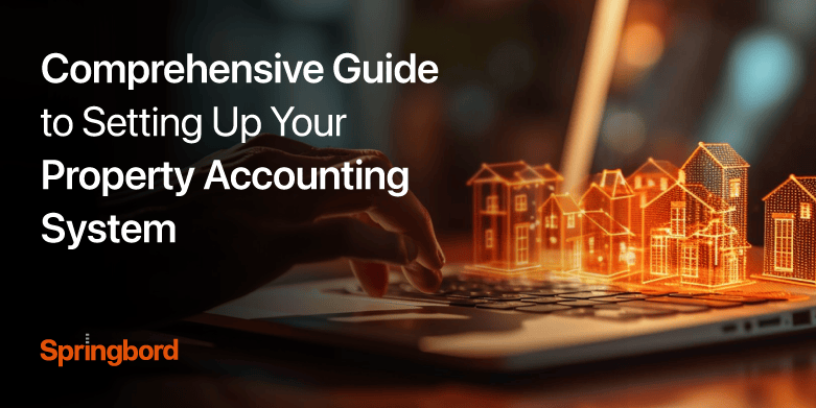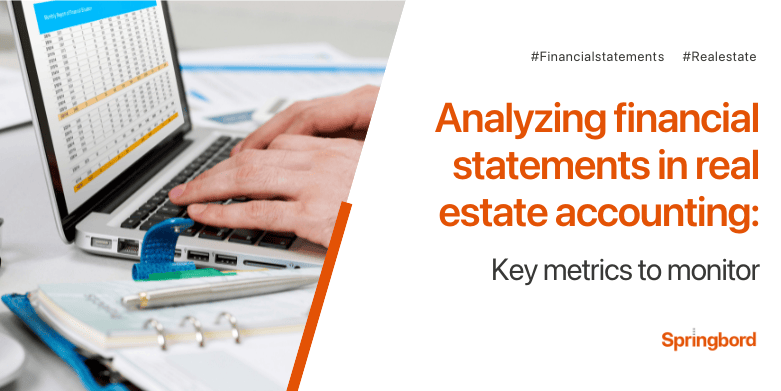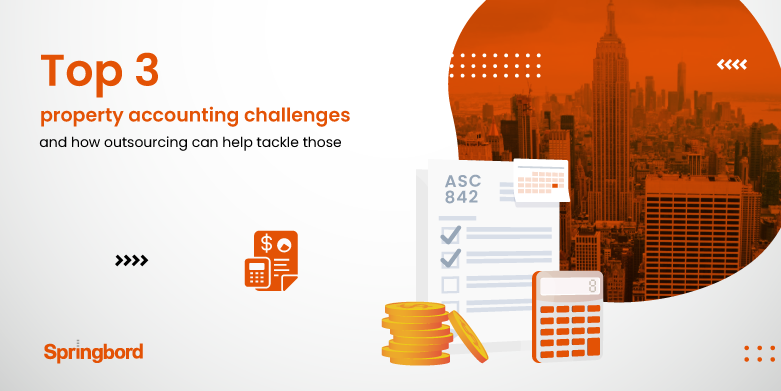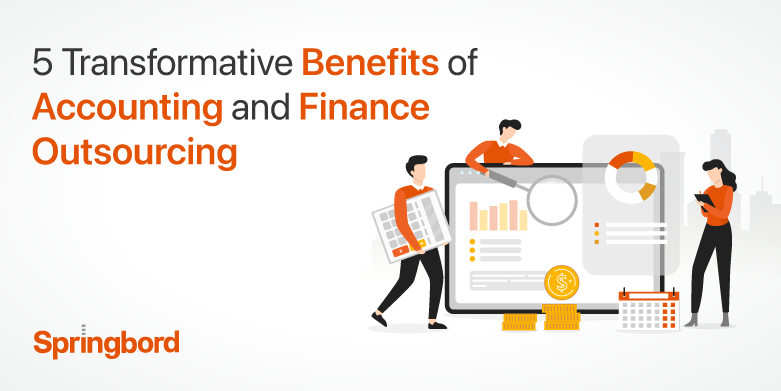 Read time 3 min
Read time 3 minIn the dynamic realm of real estate, where every property is a unique investment opportunity, keeping a meticulous account of your finances is not just a best practice—it’s a necessity.
Efficient property accounting ensures that you stay on top of your game, make informed decisions, and maximize returns.
In this comprehensive guide, we’ll walk you through the essential steps to set up a robust property accounting system tailored for real estate success.
Understanding the Basics: Real Estate Accounting Standards
Before diving into the technicalities, let’s establish a solid foundation. Real estate accounting involves adherence to specific standards that govern the industry.
According to the Generally Accepted Accounting Principles (GAAP), real estate financial reporting demands accuracy, transparency, and consistency.
One crucial aspect is property income and expense tracking. This process involves meticulous recording of rental income, operational costs, and other revenue streams. Proper tracking not only aligns with accounting standards but also provides a clear picture of your financial health.
Choosing the Right Property Accounting Software
To streamline your real estate accounting, investing in dedicated property accounting software is paramount. These tools are designed to simplify complex financial processes, offering features such as property management accounting and property expense tracking.
Research indicates that companies adopting specialized property accounting software experience a 30% reduction in manual errors and a significant boost in operational efficiency. Look for software that integrates seamlessly with your existing systems, providing a centralized platform for managing your real estate financials.
Setting Up Your Property Management Accounting System
Now, let’s delve into the practical steps to set up your property accounting system:
Establish Clear Categories for Property Income and Expenses:
Clearly define income streams such as rent, utilities, and additional services. Break down expenses into categories like maintenance, property taxes, and insurance. This meticulous categorization is crucial for accurate financial reporting and provides a comprehensive overview of your financial landscape.
Implement a Robust Property Expense Tracking System:
Utilize cutting-edge tools within your chosen property accounting software to track expenses efficiently. This not only aids in budgeting but also allows for proactive cost management. Studies show that businesses with a robust property expense tracking system witness a 25% reduction in unnecessary expenditures.
Automate Routine Tasks:
Leverage automation features offered by property accounting software to handle repetitive tasks such as invoice generation, rent collection, and financial reporting. Automation not only saves time but also minimizes the risk of human errors, contributing to increased overall accuracy.
Regularly Reconcile Financial Statements:
Performing regular reconciliations ensures that your financial statements align with your bank records. This practice instills confidence in your financial reporting and helps identify and rectify discrepancies promptly. A robust reconciliation process contributes to a more accurate financial overview.
Stay Informed About Real Estate Accounting Standards:
The real estate landscape is dynamic, with accounting standards evolving over time. Staying informed about the latest updates is essential to ensure compliance. Businesses that stay abreast of real estate accounting standards report a higher level of investor trust, fostering strong investor relations.
Expanding Your Real Estate Financial Toolbox
To further empower your real estate financial management, consider incorporating additional strategies and tools:
Risk Management Strategies:
Develop and implement risk management strategies to safeguard your real estate investments. This includes assessing potential risks such as market fluctuations, regulatory changes, and unforeseen events. A proactive risk management approach can lead to a more resilient portfolio, attracting investors and enhancing overall financial stability.
Performance Metrics Analysis:
Regularly analyze performance metrics to gauge the success of your real estate investments. Key metrics include return on investment (ROI), capitalization rate, and net operating income (NOI). Utilizing performance data enables you to make data-driven decisions and optimize your investment portfolio for maximum profitability.
Tax Planning and Compliance:
Stay vigilant about tax planning and compliance to optimize your financial outcomes. Understanding tax incentives and regulations specific to real estate can result in substantial savings. Consider consulting with tax experts to ensure you are maximizing deductions and adhering to tax regulations.
Conclusion
In conclusion, mastering your real estate financials through a well-established property accounting system is the key to sustainable success. By implementing a property management accounting system, automating routine tasks, and staying informed about real estate accounting standards, you position yourself for growth and profitability.
As you embark on this journey, consider the unparalleled benefits of Springbord—an industry-leading solution for property accounting. Springbord’s advanced features, including seamless integration, automated workflows, and adherence to real estate accounting standards, make it the ideal partner for your financial success.
Elevate your real estate game with Springbord and experience the transformative power of efficient property accounting. Unlock new possibilities, make informed decisions, and thrive in the competitive world of real estate. Whether you’re managing a single property or a diverse portfolio, Springbord empowers you to navigate the complexities of real estate finance with confidence.







